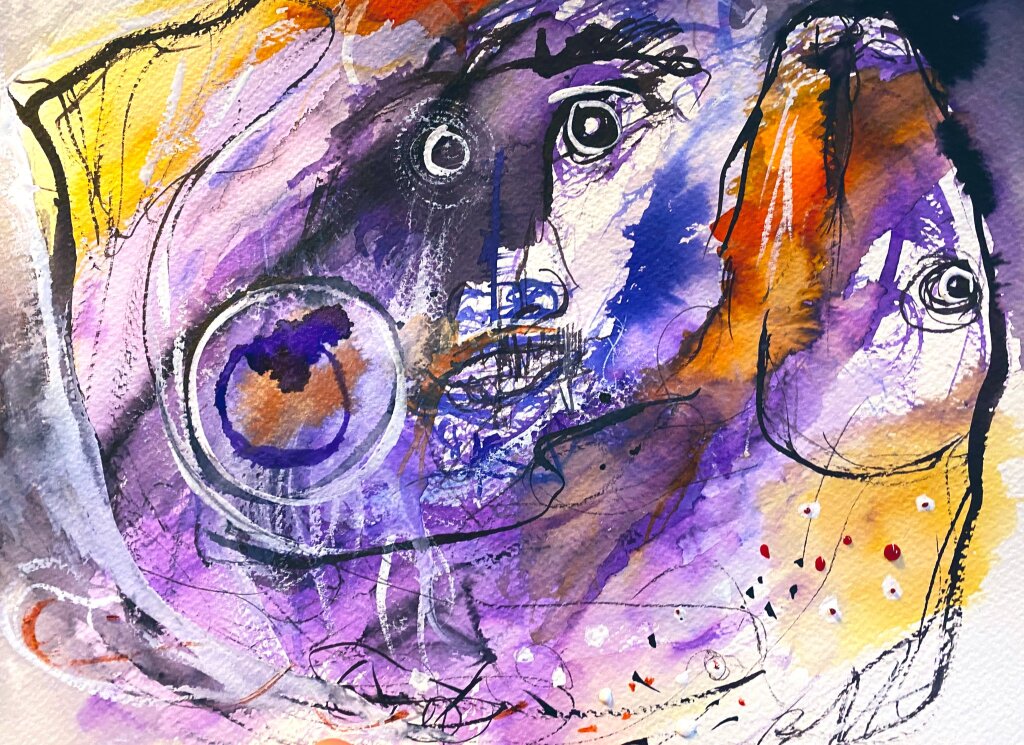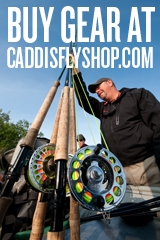A thing is right when it tends to preserve the integrity, stability and beauty of the biotic community. It is wrong when it tends otherwise.
-Aldo Leopold
European Brown Trout and fly fishing are inextricably entangled. They’re the basis of the sport, the techniques developed for these fish. They thrive in our man-made waterways like tailwaters of dammed rivers, and they are less vulnerable to the warming trends we’re imposing on the planet. They’ve been stocked in every water that would support them, in every beautiful place, for us rich white dudes to play out our fantasies.
Aquatic biologists are starting to look at this species through this lens. Brown Trout have been included in the top 30 worst invasive species on the globe (International Union for the Conservation of Nature). The data shows Brown Trout outcompete native trout (and a host of other unintended species), often displacing them. Then they get bigger and turn piscivorous, feeding on large fish including smaller versions of themselves.
And to that end, I find myself carrying a fly box of 7-inch Game Changer fly patterns, chasing cannibalistic monsters. Streamer fishing strips away the façade we carefully apply, the story we tell ourselves about what it is we are doing out here in the river.
We all make these choices regarding what lives are important in every moment. But streamer fishing throws it into full contrast. I’ve got half a gray squirrel tail wrapped up in one of these fucking things that invariably is going to wind up in a tree or pinned in some fish’s face. Another fly has a bunch of pheasant rump feathers, stained olive with a dye that surely must have been rinsed back into somebody’s river.
The synthetics aren’t much better. Every time I walk away from the vise after trimming the plastic bullshit into a fish shape, I’m covered in goddam mylar dust. I think about the microplastics floating instead of plankton in oceans.
But I convince myself not to worry about it. I drive to the river.
There is something illicit in this act. I am going to the river to snatch life out of it.
I’m not putting anything back but tobacco ash, maybe a few beads of lead shot, coffee pissed out on the side of the creek.
At best, my license dollars go towards paying small salaries for biologists who look a lot like me to figure out how to keep as many brown trout in the damn river as possible, with no funding to look at what impact that has on anything else.
The dams on the river I fish were put there by dudes who look a lot like me. They got to decide what was important and we’re all living with those decisions. The dams are why there are brown trout in the southeast. The dams are why I am standing here on this water.
I’m starting to learn a section of this river. It’s braided with boulders and islands covered in horsetail. There are some big fish on it, definitely over twenty inches. There are smallmouth bass and kingfishers, beavers and herons – all of them doing what it is they were born to do.
And then there’s me, conflicted.
In my late twenties I thought things were pretty simple. Stop putting hatchery fish on top of wild populations. Stop damming rivers. Put conservation dollars towards habitat restoration. Get the bank-anglers to stop gut-hooking wild trout with bait.
I fought hard for those values. It’s pretty much all that I fought for then. And the fishing was so good in Oregon, I might have never grown out of it.
I never really thought about how much of the “good” I was seeking to impose on the world was really just making things better for myself, for the lives I chose were deserving of reverence. I never really looked at the harm I was doing, that we all do, each of us every day consuming life so we can live. And so I turn to the trout again in my river here, consuming life so that they can live.
A big hen brown takes the game changer. It’s not a fancy one. All of the fancy ones I tied broke because I used the wrong damn wire for attaching the articulated segments. It was the last one in the box, a white chenille body, no trailing hook. It smacked the bait in the head as I it twitched over a pool full of submerged boulders.
Immediately, the fish somehow swung itself around a root-wad at the bottom of the pool. It was really big. I could see it flailing in the current. I called my buddy over, took his net, handed him my tangled rod.
There was snow on the ground, damn cold. But I went in over my waders. I got my hands around the fish but couldn’t get it off the wood. Somehow, it was still hooked, but in the fast current and cold water, I couldn’t get my fingers to work, I couldn’t unwrap the line. I couldn’t pull the hook out of its mouth. There was so much water in my waders, I could barely move.
I’m risking my life to hold this fish. To show you this fish. As if catching this thing changes the story I get to tell about myself, as if my life depends on it. I’m a father of three drowning in February for a stocked fucking trout on a tailwater.
I broke the fish off and it drifted downstream. I hope it was OK.
I was rattled by that experience. Losing a big fish is always hard. But I was struck by how important I thought it was to catch it. How I’ve shaped nearly my whole life, to do this thing, which arguably isn’t very good for the world.
The old saws don’t work anymore. Not for me at least. The idea that rivers need to be saved by rich dudes like me, putting pennies into programs that really only make things better for other rich dudes like me isn’t working.
Conservation angling is broken. It’s not enough to conserve things, to try to keep things the way they are, the way they were. Angling needs to be regenerative, to make things better. I’m not sure what that means yet.
But I can tell you, if fishing is something I’m willing to risk my life for, it needs to be better. It’s not enough to recycle waders into more waders. It’s not enough to teach inner city kids to tie wooly buggers. We need to de-center ourselves, to offer something of value, not to us, but to the multi-species communities we are embedded in.
If I keep fishing (which seemingly I am), I am going to have to find what “regenerative angling” vs “conservation angling” actually means.
-MS






Dang dude. Really good. I’m afraid I’m even more pessimistic than this, which is why I try not to think about it logically very much.
Ever think about C&R?
Thank you, Matt. I am going to re-read this every month or so.
Exceptional. Thank you.
What makes us, sometimes breaks us, or breaks something within us. And then we have to go about re-envisioning, which is not instantaneous. Powerful resonance of the guts.
Good for you, Matt. Fishing, for all its pageantry and self importance, is at its center a violent act. The implications of this are something that all anglers must confront, sooner or later. Perhaps recognizing this inevitably impels one away from only catching and releasing fish for sport. If we must angle, do you suppose we owe it to the fish to kill them and eat them?
Obviously lots of confliction within this topic, but it’s fairly straightforward in this particular situation. Is the responsibility levied on the fisherman or how the said body of water is managed? If you are battling with the idea of conservative angling within any of these types of waterways it’s basically a moot point. There’s not one part of it thats conservation focused unless you are killing every brown trout you catch. If the idea of regenerative angling is what you’re after… is that even possible given the circumstances? They’ll just plant more. Nobody likes catching chubs and shiners anyway, unless you are a heron or beaver.
Admiring and grateful of a driving point in this essay… anglers are fooling themselves if they think they are “naturalists.” Otherwise, man, it sounds like you’re going through some stuff and trying to figure out your narrative. Best wishes in your discernment. It might help to not take yourself too seriously. And maybe be a bit less declarative when you’re “not sure what that means yet.” And maybe speak for yourself but respect the liberties of others’ personal narratives. For example, when you say, “we need to de-center ourselves,” well, you might need to, and I wish you well in that quest, but, respectfully, I’ll make my own choices, thank you. And, this… “Streamer fishing strips away the façade we carefully apply, the story we tell ourselves about what it is we are doing out here in the river.” Well, I respect whatever streamer fishingn strips away for you and the story you yourself, yada yada. But you don’t own or speak for “we.” I’ll handle my own narrative, thank you, as well as my streamer rod.